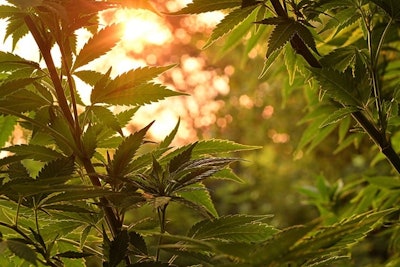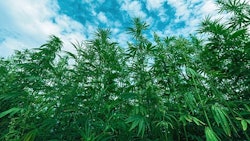
The Florida Department of Agriculture & Consumer Services will begin accepting applications for hemp production April 27, thanks to the formal approval of the state’s regulatory plan by the U.S. Department of Agriculture (USDA). Several thousand farmers are expected to apply.
Jeff Greene, co-founder of the Florida Hemp Council, says that farmers in his state are looking forward to finding a space in this new market. CBD extraction continues to be a leading segment in the hemp industry, but he points to fiber and grain production, as well as minor cannabinoid development, to show the many opportunities for prospective farmers.
“The industry is trying to establish itself,” he says. “For the longest time, it was every man out for themselves, survival of the fittest. I’ve seen with the collaboration of the Florida Hemp Council board and members that the industry is starting to see itself as a real industry—not just a cutthroat, first-come, first-served. That’s what we’ve been pushing.”
USDA approval comes in time for many farmers to look ahead to the typical 2020 planting season. But there’s also the question of fingerprint testing and background checks, required for all applicants. Licensed hemp farmers may not have a felony drug conviction on their record from the past 10 years.
The good news is that the Florida climate will allow year-round hemp cultivation. Farmers won’t be shooting out of the gates on April 27; Green predicts it will be a slower, rolling start, but the climatic patterns in the state will be of great help in these first few years.
Even still, Greene says there are plenty of open questions joining the start of Florida’s hemp market.
Greene points to several interpretations of how the state is engaging the Association of Official Seed Certifying Agencies (AOSCA) as potential hurdles in the short term. AOSCA lists both “certified” and “approved” seeds, but Greene says the state may accept either. (The Florida statutory language mandates AOSCA-certified seeds.) The issue, he says, is that it’s not entirely clear what sort of guidance hemp farmers will have when sourcing seeds.
“Now, are we really finding out what grows in Florida or not?” Greene asks. “Really, what the state’s saying is, for commercial cultivation, we don’t want the farmers to have to take the risk. But the reality of it is AOSCA doesn’t mean it’s risk-free. An AOSCA-certified seed does not say it’s going to be below 0.3% [THC content]. It just says that the genealogy of the seed is certified.”
The Florida Hemp Council is working on getting a state university to consider some sort of communal research project that will let farmers (who are willing to take the risk) work with non-certified seeds in a non-commercial setting that will allow them to grow beyond the THC threshold. This will also let growers learn more about which varieties grow in Florida.
Further, ongoing university-level research will begin to shed light on the economics of this newly legal industry. The oversupply and subsequent price crash in late 2019 continues to linger in 2020. With the USDA ramping up formal approval of state plans (and some states choosing to operate under 2014 Farm Bill auspices), it’s expected that even more farmers will be growing hemp this year.
“The supply-side economics of 16 states now with USDA approvals means that we have a huge bump up in supply and, with shadowbanning and difficulty in export, a limitation in demand,” Greene says. “With COVID, even more limitation in demand.”
He points out that Florida has a strong manufacturing base already. And while the early hemp segment of that manufacturing base has been buying biomass from the open market—from Kentucky, from Colorado—Greene says that there’s a built-in demand ready to go in his state, once buyers have a chance to revisit contracts and once Florida farmers are up and running with their first harvests.
“After months of incorporating feedback from the public, growers, and industry stakeholders, we are thrilled that Florida’s hemp industry officially begins now,” Florida Agriculture Commissioner Nikki Fried said in a public statement. “I thank the USDA for their swift review and approval of our state hemp program. By working closely with our farmers, processors, retailers, and consumers, Florida’s state hemp program will become a model for the nation, will set a gold standard for this emerging industry, and will create billions in economic opportunity for Florida. As our economy deals with the impacts of COVID-19, this approval will give our agriculture industry a new alternative crop for many years to come.”
























